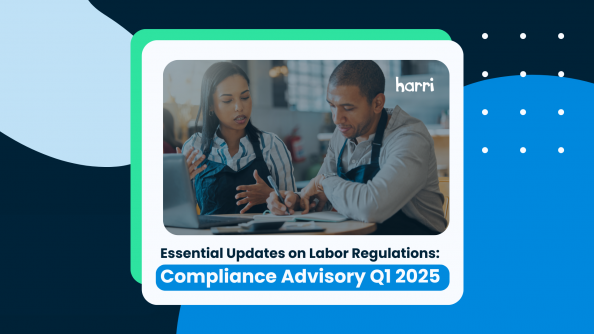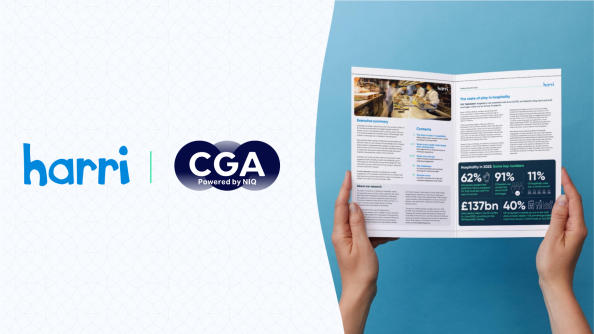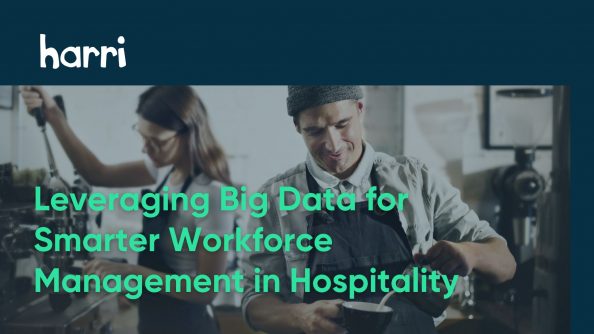3 Ways to Cut the Cost of Compliance Risks

- By Harri Insider Team | June 29, 2023
Labor compliance is an ongoing priority for hospitality operators who manage an hourly workforce. It can feel like a daunting challenge as legislation changes become more confusing each year, but every small step you take to understand and take action may save you millions of dollars.
Harri’s platform may assist you with managing the complex world of compliance requirements. Hospitality employers worldwide may experience varying fines, legal fees, and penalties due to compliance risks. The continuous evolution of labor and employment legislation requires proactive efforts on behalf of employers. Harri has provided a breakdown of three common compliance areas of risk for your review.
Why Does Non-compliance Cost So Much?
The Quick Breakdown of Compliance Risk Costs
- Fines and penalties: Government agencies are tasked with enforcing employment laws on a national, state, and jurisdictional level. Different laws are associated with specific fines and penalties which vary in severity. Employers are encouraged to monitor which employment laws are applicable to their business and employees.
- Corrective compensation: Employers who violate wage and hours laws may be required to pay workers back wages and compensate for any unpaid hours or owed benefits.
- Legal Fees: Employees who feel they have been the victim of an employment law violation may be encouraged to take legal action against their employer. Both parties will require legal representation.
- Damage to reputation and brands: Non-compliance can alter customer perception, brand reputation, and stakeholder relationships leading to revenue loss.
- Turnover and productivity: Non-compliance may leave employers with a higher turnover rate of employees and as a result, lost revenue.

What Are Examples of Compliance Risks and how might they be avoided?
The best way to protect your organization from the cost of non-compliance is to familiarize yourself with common compliance risks and create a plan to combat them.
1. Violations Specific to Minors
When employing minors, employers must consider their school hours, work hour limitations, and parental consent requirements per the child labor laws. Minors may also be paid a different minimum wage than the adult hourly workers on staff. Review the minimum wage requirements to better understand the rate(s) at which minors must be paid.
Employers should also familiarize themselves with the working permit requirements, education attendance requirements, and mandatory safety training. All compliance efforts should be documented and stored for record-keeping purposes.
How Harri helps maintain compliance with minor employment requirements:
- Access a full view of a minor’s work hours and employment details within their employee profile
- Systematic alerts will notify the employer if a minor is working hours that are non-compliant
- Compliance settings may be configured for each individual location.
Compliance in action:
A Jersey Mike’s franchise that employs talent of varied ages stays compliant with local Chicago legislation for each of its workers with the help of Harri. The teams lean on alerts for violations, scheduling prevention where necessary to avoid non-compliant work hours and violation audits that keep them on top of it all.
“I tried to rationalize the idea of managing compliance manually by spending a lot of time every week to determine if employees clocked in and out of their break when they were supposed to or if we made a change and denoted it, that we’d remember to pay them out for that premium. I can’t even quantify or imagine all of the soft costs it would have required to successfully keep track of something like that without having a system like Harri. Their system really provided all that we needed to prevent and notify us when compliance-related issues would occur within the flow of work.”
Kevin Gancarz, Director of Operations, MPSquared Subs (Jersey Mike’s)
2. Meal Breaks
Employers in many states must provide hourly employees with a meal and/or rest break. Employees may be eligible for multiple breaks depending on the length of their shift and which state or jurisdiction they work in.
Meal break nuances to consider in your policies include:
- Paid breaks vs. unpaid breaks
- Minimum shift length to be eligible for a break
- Flexibility around optional meal breaks for specific shifts
Avoid penalties with technology to help you:
- Ensure break compliance is built into employee schedules
- Automatically prompt managers to account for both paid and unpaid breaks for eligible shifts
Compliance in Action:
Cafua, the largest private Dunkin’ Donuts franchise in the United States, saved over 13 hours when building out employee schedules using the scheduling functionality within the Harri Workforce Management System. . Harri’s reports and audit features allowed Cafua to audit specific clock-ins and clock-outs across 225 locations and 5,000 employees. The audit displayed a clear view of the hours individuals worked and provided them evidence that they were scheduling compliantly per their jurisdiction’s requirements.
“Harri needed to grow with us, and they were able to do so. It was such a challenging feat to navigate an ever-changing business with our M&A activity and ambitious vision for digital transformation. I couldn’t have asked for a better partner.”
Patty Collins, Director of Accounting and Business Process, Cafua Management (Dunkin Donuts)
3. Fair Workweek
Employers who operate in a Fair Workweek jurisdiction face advanced layers of compliance risks. Fair Workweek laws and regulations promote predictable and stable work schedules for employees and place additional compliance requirements on the employer.
- Right to rest period: Employers should not schedule an employee during a mandated period of rest required between two shifts. As an example, an employee who finishes their shift at 8PM on a Monday Evening, may be entitled to a rest period of 11 hours until the start of their next shift. Therefore, they may not be scheduled until 7AM on Tuesday morning. Employers who fail to schedule their employees compliantly with a rest period may be required to collect the employee’s consent to work the shift that violates the rest period. They may also be required to pay them an additional premium in addition to their hours worked.
- Advance notice of work schedule: Employers must provide employees with their work schedule in advance of the start of the workweek. The advance notice period differs by jurisdiction.
- Predictable pay: If an employer makes a change to the Work Schedule following initial publication, they may owe employee (s) a premium for each change.
- Voluntary shift swaps and schedule requests: Some employers must grant workers the right to request a schedule change or swap with reasonable accommodation and without retaliation.
Avoid penalties with technology to help you:
- Alert managers if a shift violates an employee’s right to rest period Fully audit compliance breaches, premium payments, and good faith documentation
- Approve employee-driven shift swaps
- Automatically factor in shift preferences when creating schedules
- Allow employees to volunteer for open shifts via the Available Shifts pool
Compliance in Action:
Gregory’s Coffee stays compliant with Fair Workweek laws across 35 locations with the support of Harri’s solution suite to keep managers digitally organized with visibility and transparency into every worker and schedule. They pride themselves on the ability to stay ahead of compliance to avoid costly fines and, more importantly, maintain a successful and motivated workforce.
“Fair Workweek can be scary at first. It can be really overwhelming if you’re a new manager who’s just been promoted and suddenly, you have to learn the legalities of managing people in Manhattan. The way Harri tracks everything for us eliminates the anxiety that comes with manually tracking things and making sure that we’re compliant. For me, it’s a huge relief. “
Jessica Day, VP of People, Gregorys Coffee

Cut Compliance Costs With Harri
Compliance is Harri’s top priority. Harri aims to build a product to assist the hospitality industry with navigating complex and evolving compliance requirements.
Our all-in-one compliance workforce management system is built to take on the complexity of compliance and elevate gaps that keep you one step ahead of risky fines or legal implications. Refer to Harri’s go-to guide for a clear picture of compliance today, the full scope of risks ahead, and how to lean on resources like Harri.




















